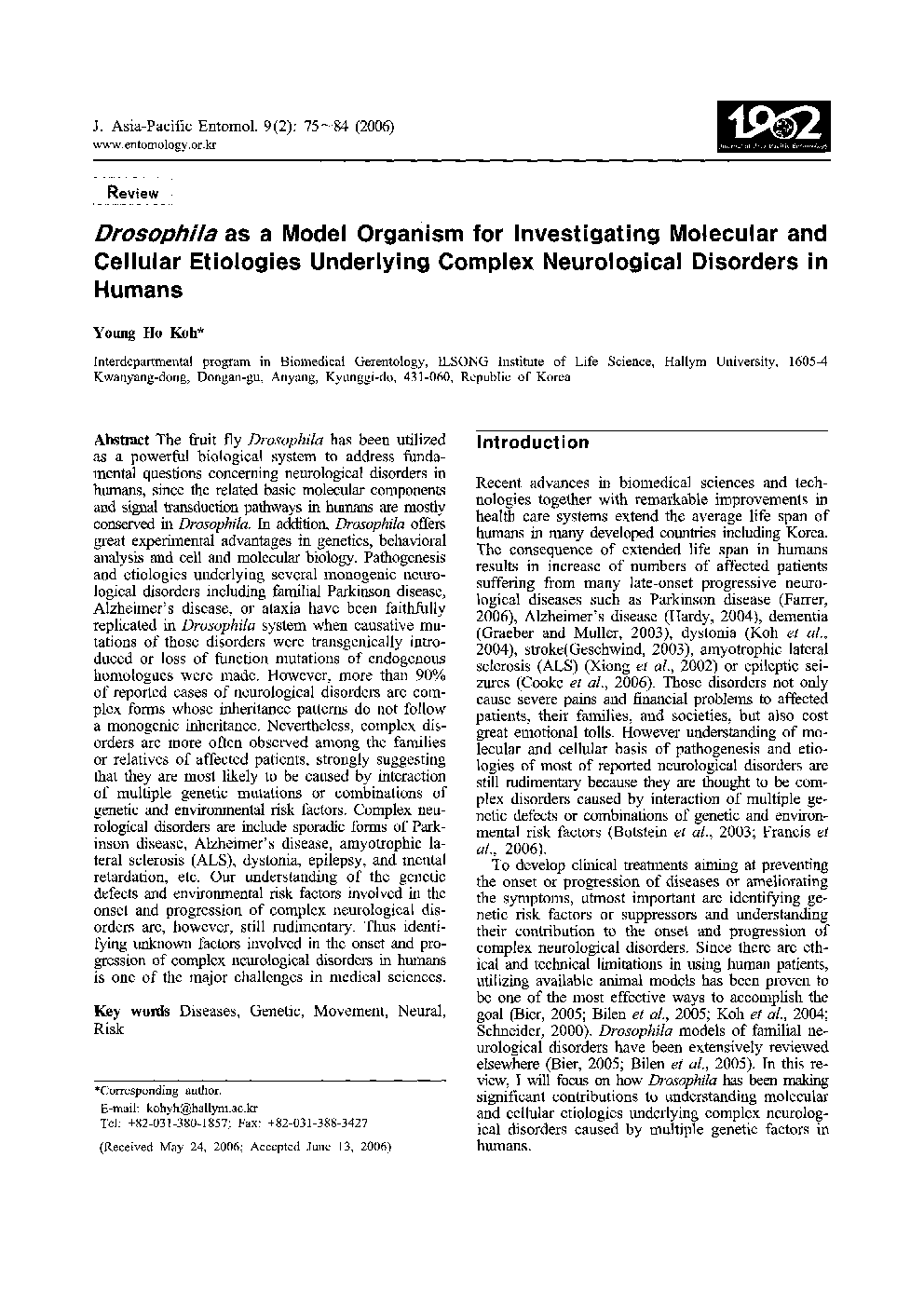| Article ID | Journal | Published Year | Pages | File Type |
|---|---|---|---|---|
| 4525182 | Journal of Asia-Pacific Entomology | 2006 | 10 Pages |
The fruit fly Drosophila has been utilized as a powerful biological system to address fundamental questions concerning neurological disorders in humans, since the related basic molecular components and signal transduction pathways in humans are mostly conserved in Drosophila. In addition, Drosophila offers great experimental advantages in genetics, behavioral analysis and cell and molecular biology. Pathogenesis and etiologies underlying several monogenic neurological disorders including familial Parkinson disease, Alzheimer's disease, or ataxia have been faithfully replicated in Drosophila system when causative mutations of those disorders were transgenically introduced or loss of function mutations of endogenous homologues were made. However, more than 90% of reported cases of neurological disorders are complex forms whose inheritance patterns do not follow a monogenic inheritance. Nevertheless, complex disorders are more often observed among the families or relatives of affected patients, strongly suggesting that they are most likely to be caused by interaction of multiple genetic mutations or combinations of genetic and environmental risk factors. Complex neurological disorders are include sporadic forms of Parkinson disease, Alzheimer's disease, amyotrophic lateral sclerosis (ALS), dystonia, epilepsy, and mental retardation, etc. Our understanding of the genetic defects and environmental risk factors involved in the onset and progression of complex neurological disorders are, however, still rudimentary. Thus identifying unknown factors involved in the onset and progression of complex neurological disorders in humans is one of the major challenges in medical sciences.
